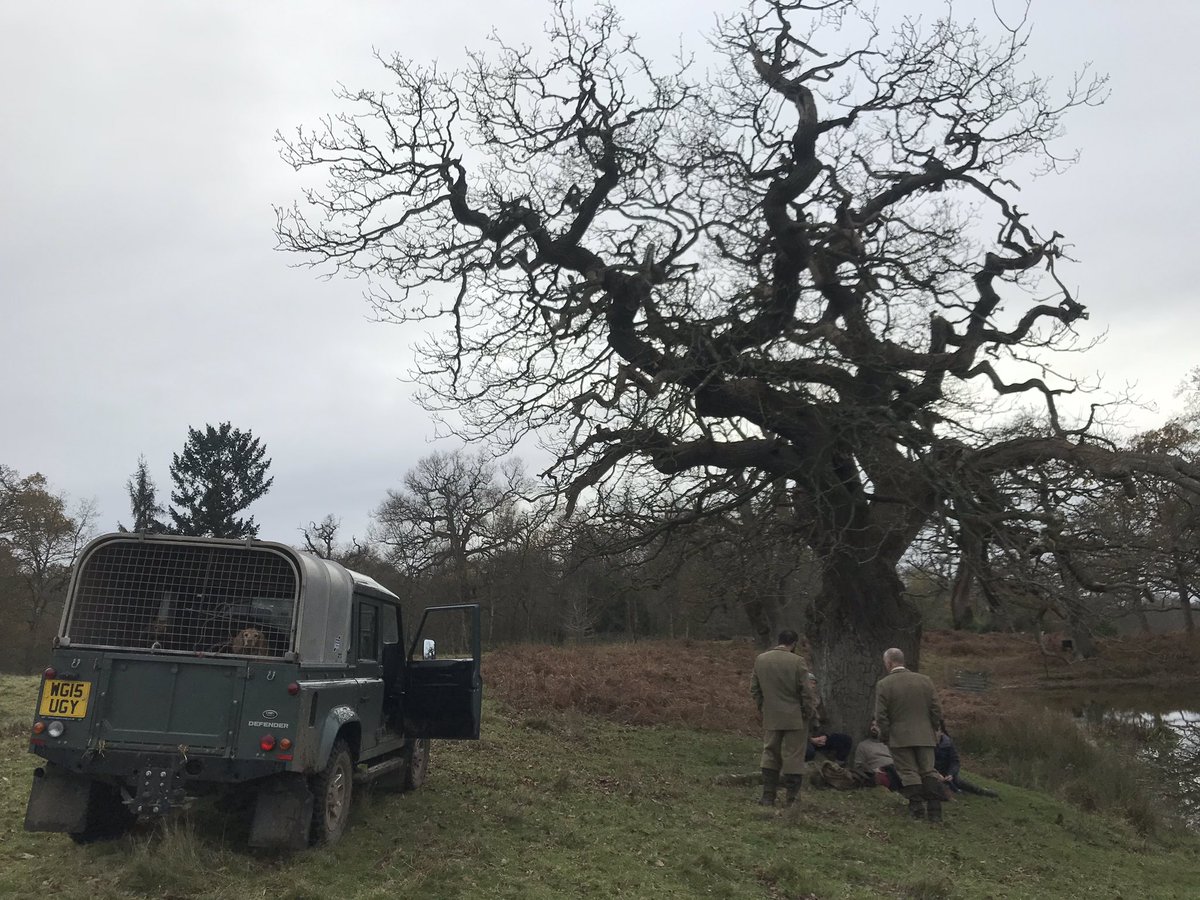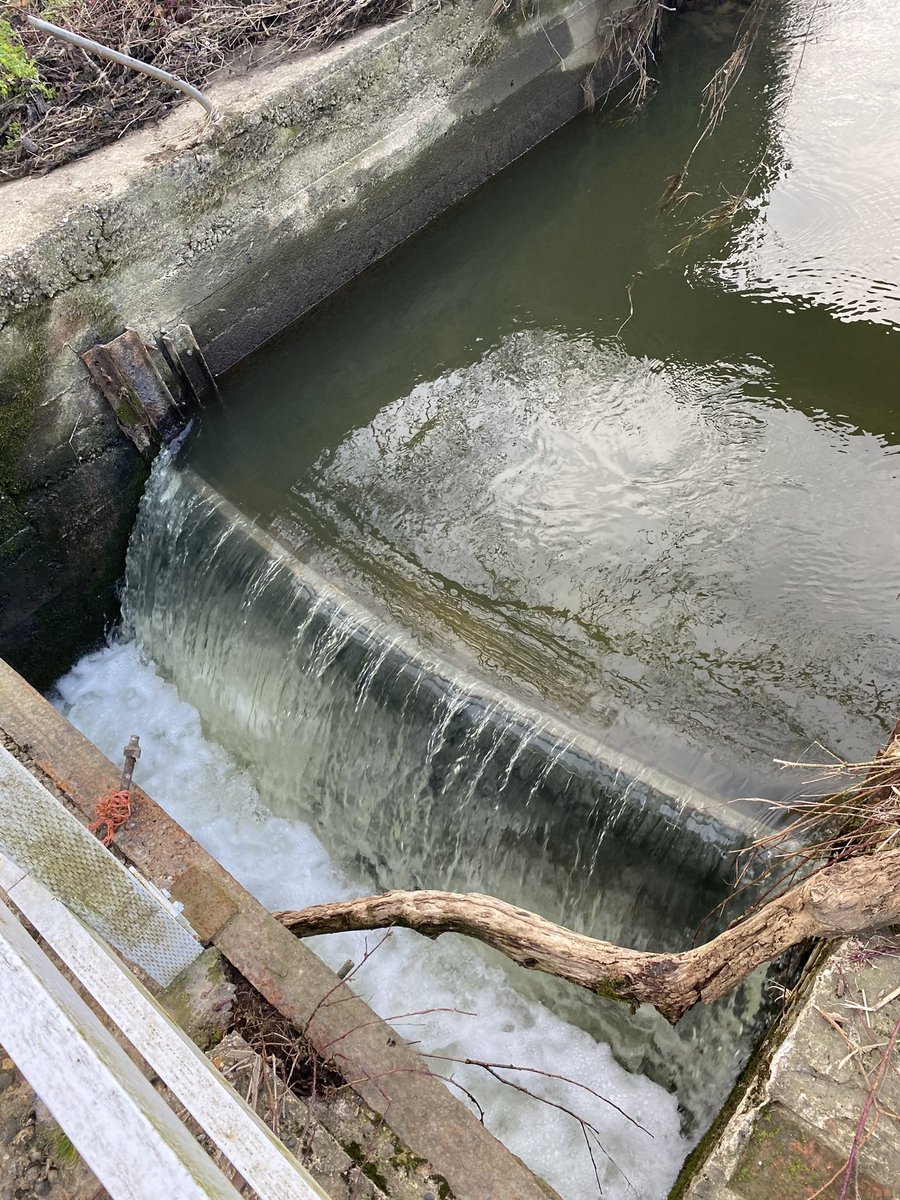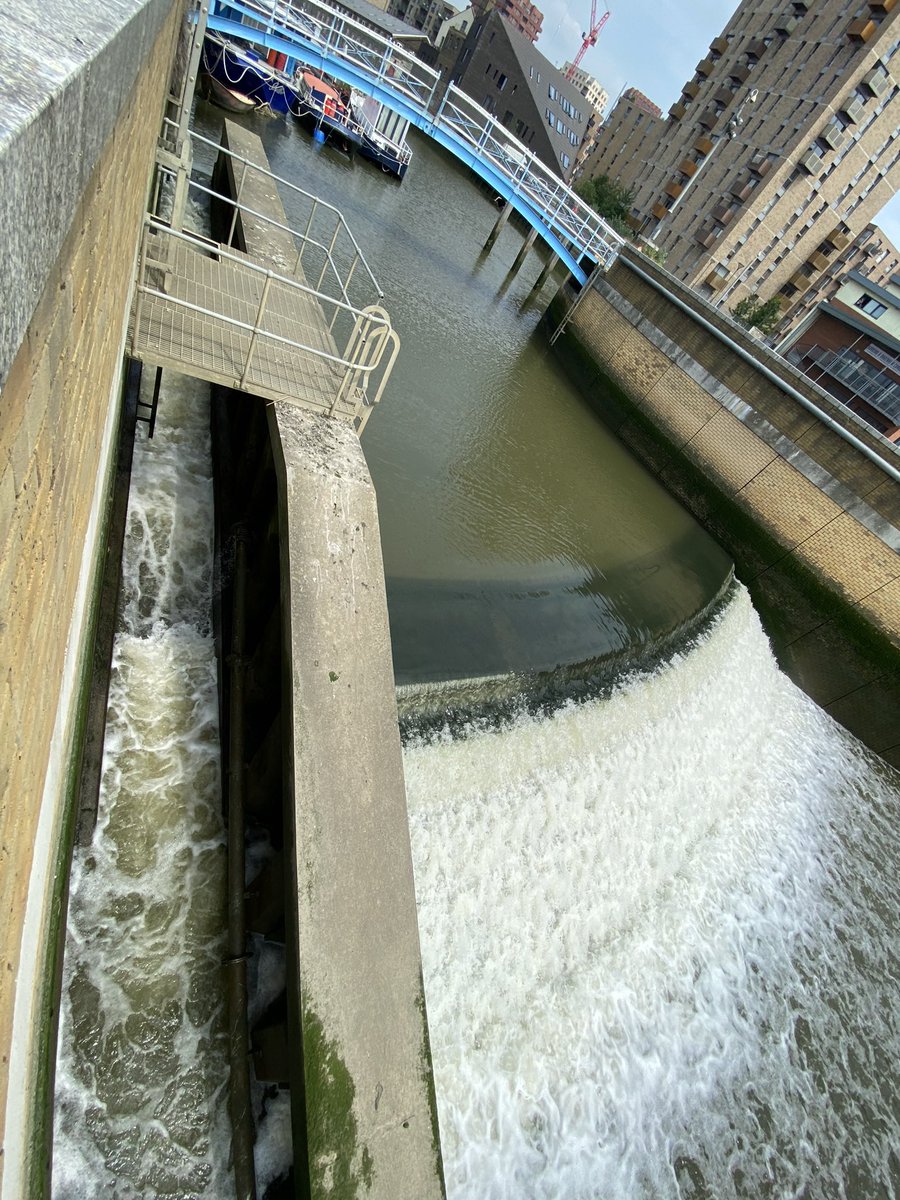What do you get if you cross the ‘Minister for Access to Nature’ with his 10,000 acre private estate near Reading that the public are almost entirely excluded from? Answer: the perfect place for a sunny winter day’s trespass on the hidden estates of @RichardHRBenyon 🧵 

We only recently found out that Benyon’s full title was ‘Parliamentary Under Secretary of State (Minister for Rural Affairs, access to nature and Biosecurity)’. So, we decided to visit the Englefield Estate he owns to see what access to nature means in practice
I was joined by the creme-de-la-creme of trespass: @nickhayesillus1 who literally wrote the book on it; @jm0ses who understands the politics of access so well; & @samleesong to sing us folk songs of resistance as we walked. The first gate we came to didn’t bode well for access... 

So we hopped over an adjacent wall taking us through woods at the edge of a sumptuous deer park. We spied the towers of one of the biggest houses I’ve ever seen in the distance 

But squeezed through railings to avoid intruding too close to the main house and disturbing the privacy of its residents. This took us to the site of a deer park that had previously been a village, cleared by a Benyon of ages past to stop poor people spoiling his view. 

We came to a tranquil pond with a stunning oak next to it, with huge roots perfect for sitting in. I climbed the tree whilst we talked together & admired the nature and beauty of the place. 

This did not last long. We saw a vehicle stuffed full of tweed clad shooters & this was soon followed by multiple vehicles and game keepers joining us by the tree. When the game keepers realised we would not leave without at least explaining our views... 

... a fascinating conversation followed, covering land rights, ecology, conservation, connection & access to nature & the game keeper’s burning dislike of @ChrisGPackham. Whilst we clearly had different views about the countryside, there was laughter & some mutual understanding. 

Towards the end, the game keeper asked why we kept bringing up history, when we should concentrate on the here & now. I replied that it was the history of who Benyon’s ancestors were compared to mine that he had the right to use force to remove me from this beautiful nature... 

... but the difference now being that unlike what his ancestors did to people like my ancestors, he could no longer hang, shoot or transport me for being on his land & that it was with deep pride & love for my ancestors that I was there, doing what they could not.
Afterwards, we shook hands with the keeper & carried on our way, passing huge historic oaks and sweet chestnuts as we made our way out of the deer park, popping into the church and cutting across another private driveway to take us back to where we had begun. 

Time spent with good friends out in nature is always time well spent, but especially when the location itself asks searching questions about what access to & connection with nature means without #righttoroam & how our rights are so strongly dictated by historical land ownership. 

• • •
Missing some Tweet in this thread? You can try to
force a refresh









































